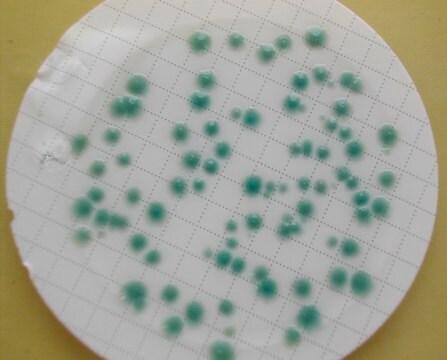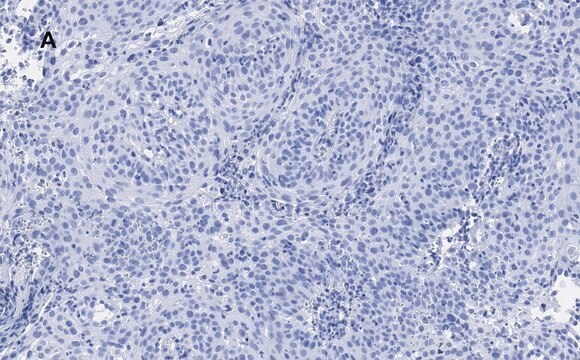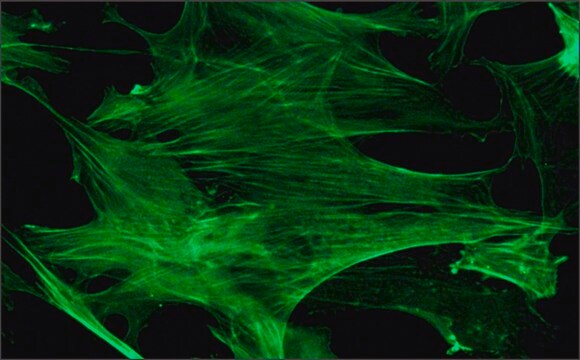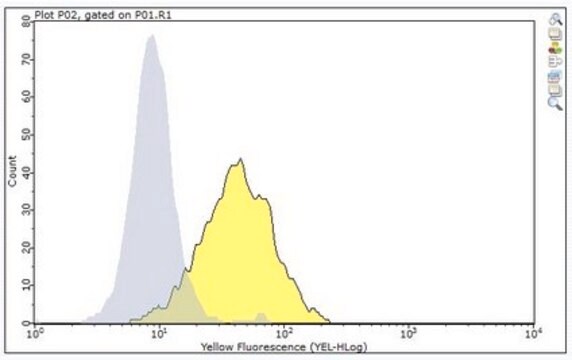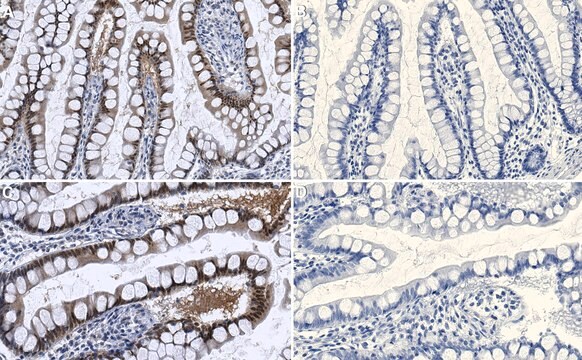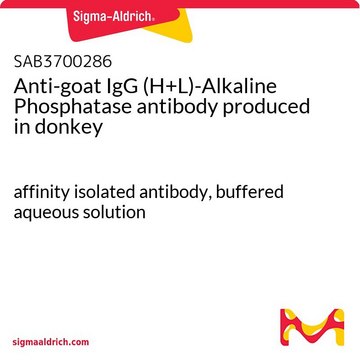MABN1840
Anti-Neuritin (CPG15) Antibody, clone A6.1
clone A6.1, from mouse
Synonyme(s) :
candidate plasticity gene 15, CPG15
About This Item
Produits recommandés
Source biologique
mouse
Forme d'anticorps
purified immunoglobulin
Type de produit anticorps
primary antibodies
Clone
A6.1, monoclonal
Espèces réactives
rat, human
Réactivité de l'espèce (prédite par homologie)
monkey (based on 100% sequence homology), bovine (based on 100% sequence homology)
Conditionnement
antibody small pack of 25 μg
Technique(s)
western blot: suitable
Isotype
IgG2bκ
Numéro d'accès NCBI
Numéro d'accès UniProt
Modification post-traductionnelle de la cible
unmodified
Informations sur le gène
human ... NRN1(51299)
Description générale
Spécificité
Immunogène
Application
Neuroscience
Qualité
Western Blotting Analysis: 0.5 µg/mL of this antibody detected recombinant human/rat Neuritin (CPG15).
Description de la cible
Forme physique
Stockage et stabilité
Autres remarques
Clause de non-responsabilité
Vous ne trouvez pas le bon produit ?
Essayez notre Outil de sélection de produits.
Certificats d'analyse (COA)
Recherchez un Certificats d'analyse (COA) en saisissant le numéro de lot du produit. Les numéros de lot figurent sur l'étiquette du produit après les mots "Lot" ou "Batch".
Déjà en possession de ce produit ?
Retrouvez la documentation relative aux produits que vous avez récemment achetés dans la Bibliothèque de documents.
Notre équipe de scientifiques dispose d'une expérience dans tous les secteurs de la recherche, notamment en sciences de la vie, science des matériaux, synthèse chimique, chromatographie, analyse et dans de nombreux autres domaines..
Contacter notre Service technique